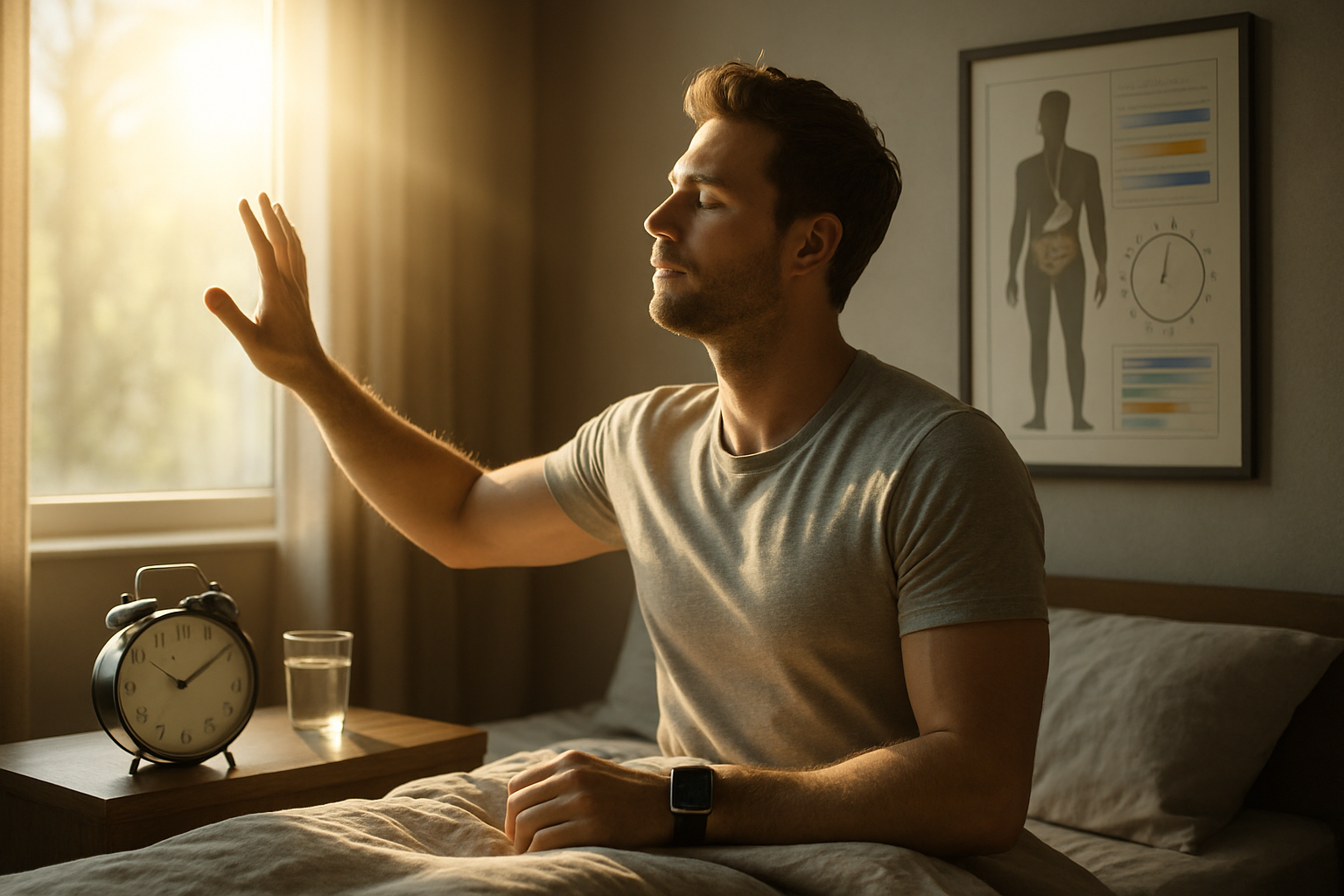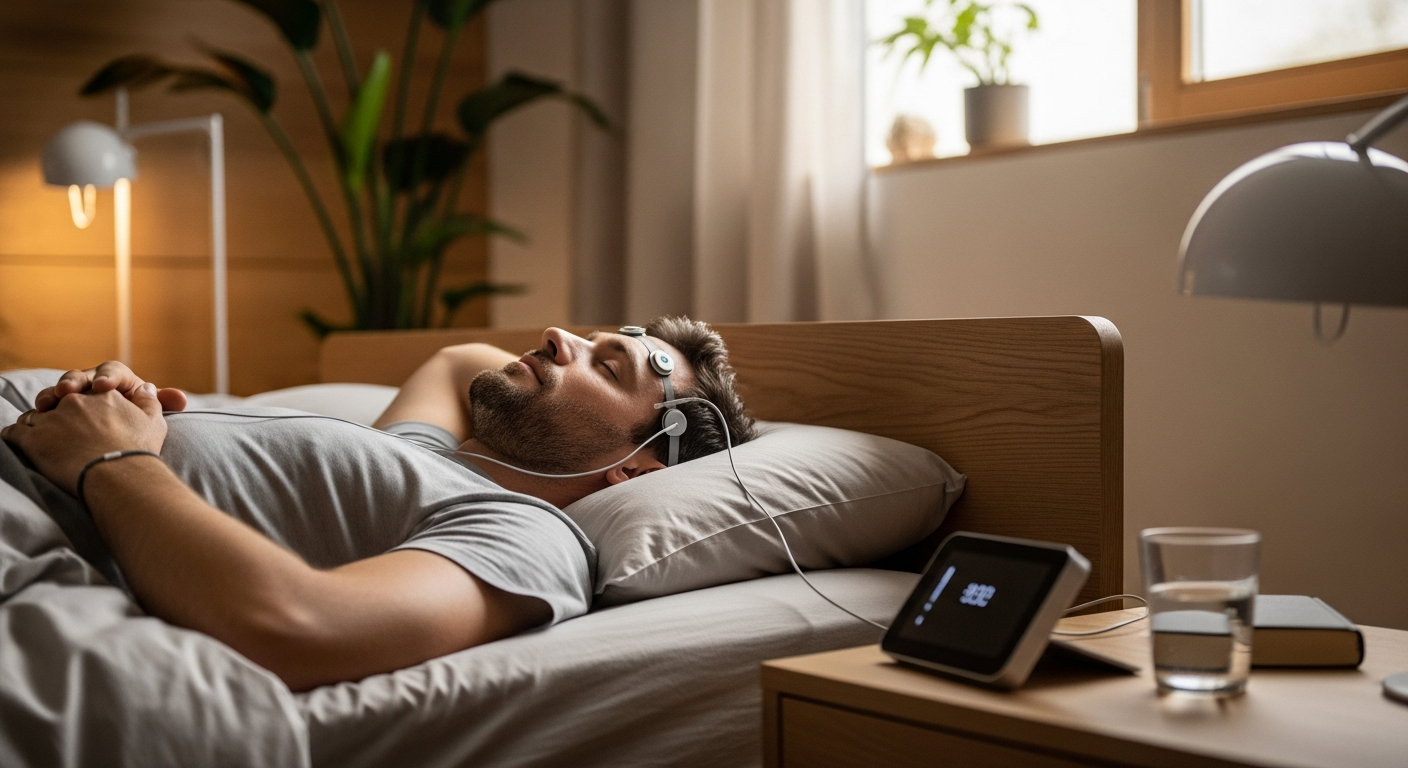Biohacking Your Circadian Rhythm: The Next Frontier in Wellness
The gentle glow of sunrise filters through your window, and you awake feeling refreshed, energized, and ready to tackle the day. But what if this wasn't just a rare occurrence, but your daily reality? Welcome to the world of circadian rhythm optimization, where cutting-edge science meets ancient wisdom to revolutionize your health and well-being.

The Science Behind Your Body’s Internal Clock
At its core, the circadian rhythm is our body’s natural, internal process that regulates the sleep-wake cycle and repeats roughly every 24 hours. This biological clock is influenced by external cues, primarily light, but also temperature, eating patterns, and social interactions. The suprachiasmatic nucleus (SCN), a tiny region in the brain’s hypothalamus, acts as the master timekeeper, orchestrating a symphony of physiological processes throughout the body.
Recent research has revealed that nearly every cell in our body contains its own circadian clock, controlling everything from hormone production and body temperature to metabolism and cognitive function. When these clocks are in sync, we experience optimal health and performance. However, modern lifestyles often disrupt this delicate balance, leading to a host of health issues.
The Impact of Circadian Disruption on Health
Chronic circadian disruption has been linked to a myriad of health problems, including obesity, diabetes, cardiovascular disease, and even certain types of cancer. Shift workers, frequent travelers, and those who regularly stay up late staring at screens are particularly vulnerable to these risks. The disconnect between our internal biological rhythms and external environmental cues can wreak havoc on our bodies, compromising immune function, cognitive performance, and emotional well-being.
Understanding the far-reaching consequences of circadian misalignment underscores the importance of taking proactive steps to optimize our internal clocks. By doing so, we can not only prevent these health issues but also enhance our overall quality of life.
Strategies for Circadian Rhythm Optimization
Harnessing the power of your circadian rhythm doesn’t require complex interventions or expensive gadgets. Simple, consistent lifestyle changes can yield profound results. Here are some evidence-based strategies to get you started:
Light Exposure Management
Light is the most powerful zeitgeber (time giver) for our circadian system. Optimizing your light exposure throughout the day can significantly impact your sleep-wake cycle and overall well-being. Aim to get bright light exposure, preferably natural sunlight, within the first hour of waking. This helps to suppress melatonin production and boost alertness.
Conversely, limit blue light exposure in the evening by using blue light blocking glasses or apps on your devices. Creating a dimly lit environment in the hours leading up to bedtime signals to your body that it’s time to wind down and prepare for sleep.
Time-Restricted Eating
Emerging research suggests that when we eat can be just as important as what we eat. Time-restricted eating, a form of intermittent fasting that aligns food intake with our circadian rhythms, has shown promising results in improving metabolic health, weight management, and sleep quality.
Try limiting your eating window to 8-12 hours during the day, with your last meal at least 3 hours before bedtime. This allows your digestive system to rest and repair overnight, potentially leading to better sleep and improved metabolic function.
Temperature Regulation
Our body temperature naturally fluctuates throughout the day, dropping slightly in the evening to prepare for sleep. You can support this process by keeping your sleeping environment cool, ideally between 60-67°F (15-19°C). Some biohackers even experiment with temperature contrast therapy, such as taking a hot bath followed by a cooler bedroom, to enhance sleep quality.
Movement and Exercise Timing
Regular physical activity is crucial for overall health, but timing your workouts can also impact your circadian rhythm. Morning exercise, especially when combined with outdoor light exposure, can help reset your body clock and improve sleep quality. However, intense evening workouts may disrupt sleep for some individuals. Experiment to find what works best for your body and schedule.
Stress Management and Relaxation Techniques
Chronic stress can throw your circadian rhythm out of whack, leading to sleep disturbances and other health issues. Incorporating stress-reduction techniques like meditation, deep breathing exercises, or yoga into your daily routine can help regulate your body’s stress response and support healthy circadian function.
Circadian-Friendly Lifestyle Tips
-
Create a consistent sleep schedule, even on weekends
-
Use blackout curtains or an eye mask to ensure complete darkness during sleep
-
Avoid caffeine after 2 PM to prevent sleep disruption
-
Incorporate natural light breaks throughout your workday
-
Consider using a dawn simulator alarm clock for gentle morning wakening
-
Opt for warm, dim lighting in the evening to promote melatonin production
-
Practice a calming bedtime ritual to signal to your body it’s time to sleep
As we continue to unravel the mysteries of our internal clocks, it’s clear that optimizing our circadian rhythms holds immense potential for enhancing our health and well-being. By aligning our lifestyles with our natural biological rhythms, we can unlock new levels of vitality, productivity, and overall life satisfaction. The journey to circadian optimization is a personal one, requiring patience and experimentation. But with consistent effort and attention to the rhythms of your body, you can tap into an incredible source of wellness and vitality that has been within you all along.






